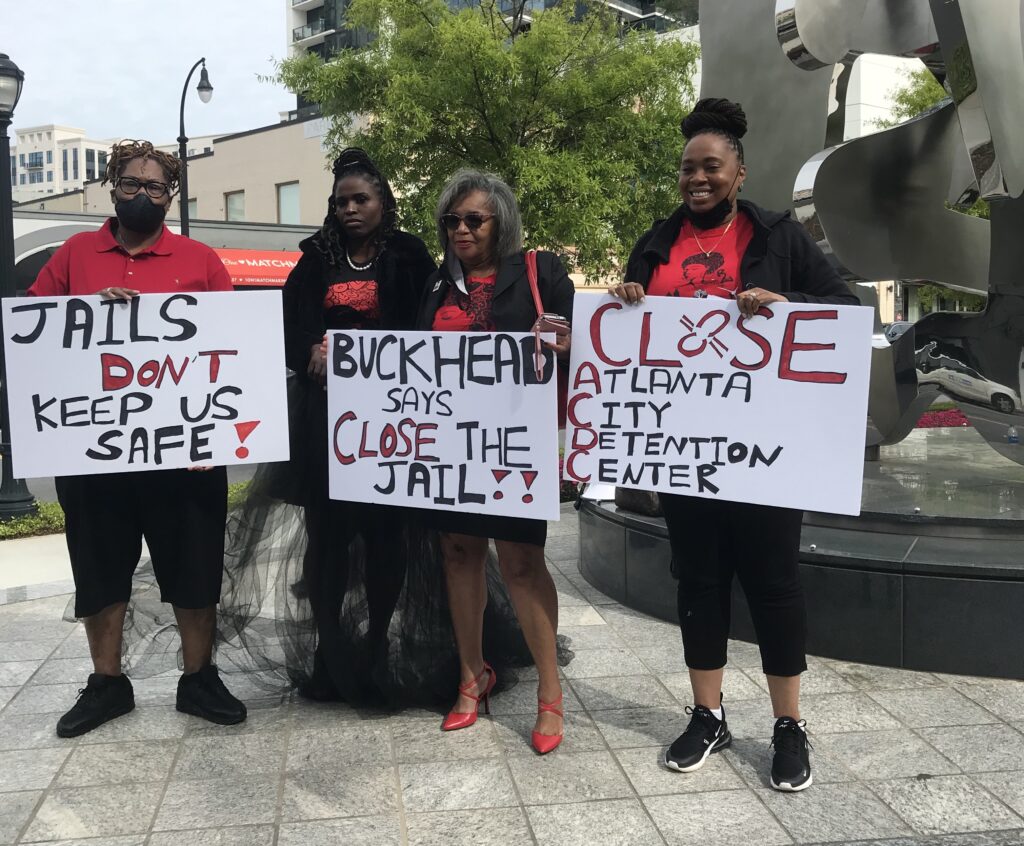Long before I was out, I was known. I was in 7th grade the first time a group of boys yelled “Wehman’s a Man!” up the stairwell at me. Over the next five years the yelling escalated to shoving, to being buzzed off the road by cars of teenage boys yelling homophobic slurs, to teachers punishing me for not adhering to gender dress norms or for kissing my high school girlfriend in public– like hundreds of other teenagers around us. As I became an adult, homophobia and transphobia continued to shape my life in the form of job, housing, and healthcare discrimination and the ways that fear of violence and discrimination restricted where I went or what I thought was possible in my life.
My name is Grover, I’m a Butch parent with two young kids, a writer, the kind of person who puts bright pink wallpaper in their house. I joined the staff at SURJ two months ago as the Deputy Director of Communications, and know that storytelling is one important way we can come together to make sense of the world and gain the strength to take action together.
As we close out LGBTQ pride month, I want to share my story with you that shapes my motivation– my shared interest– in ending white supremacy as a white queer person. What do I mean by shared interest? I mean the specific ways I, in my specific humanity as a white person in a racist world, have a personal stake in the work to end racism and white supremacy. Not just a duty as a person who cares about others, not just a responsibility for repair as white person in a racist system, but a fight-for-our-lives shared investment with communities of color in ending white supremacy and racism and creating a better world for us all.
When I was 19, I lost stable housing for the first time and became one of the many gender-non-conforming, queer, and trans young people who experience homelessness and housing insecurity in their lifetime. I slept in my car, a storage locker, my friend’s couch, a basement, my workplace’s couch before opening shift. I changed cities, I walked into social service offices, waiting, waiting, only to be sent out with no help. Maybe some of you reading this share this experience too?
The racist strategy of those at the top is to present homelessness prevention and affordable, publicly supported housing as a handout, rather than tell the truth: that the system of homelessness is a violent choice our nation makes and justifies with racist, classist messages and greedy policies, and we can make it rare, brief, and singular like other nations have. White queer and trans people, white people who’ve experienced housing insecurity, have everything to gain by ending white supremacy.
Read the rest of my story here.
As a queer white person, the world will be a safer place for me when we end white supremacy. White nationalists are among us, embedded in the leadership of majority white communities and being radicalized every day by intentional organizing online and in person. They are dangerous to communities of color, Jewish and Muslim communities, and must be stopped. They are dangerous to LGBTQ people across race and faith, to children whose genders don’t conform to a narrow sense of what boys and girls should be and must be stopped. They are dangerous to cis and straight white men and women of conscience and must be stopped. We must out organize the right.
The story I told here is an example of mutual interest or shared interest storytelling. As white people organizing, we can all identify a shared interest– or two or three– in ending white supremacy.




